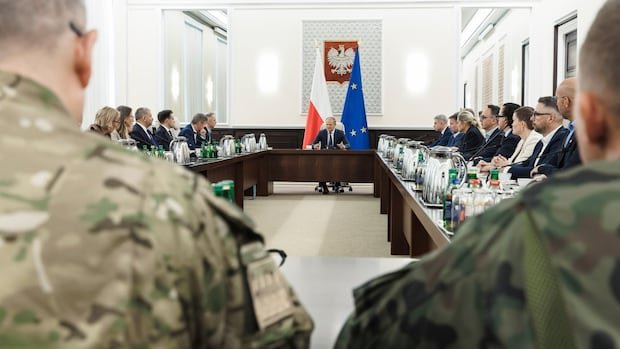Poland has activated Article 4 of the North Atlantic Treaty Organization (NATO) after intercepting Russian drones that breached its airspace on Wednesday. This event occurred following Russia’s significant aerial assault on Ukraine, marking the first instance of a NATO member engaging in military action since the conflict initiated in 2022.
Article 4 of the NATO treaty, although less recognized than Article 5, which declares an attack on one member as an attack on all, stipulates that member states will consult when the territorial integrity or security of any party is jeopardized. Consequently, Poland exercised its right to discuss the incursion with other NATO allies.
In response to the Russian drone incursion, Polish and Dutch fighter jets intercepted and shot down some of the drones, prompting urgent discussions among NATO ambassadors at the organization’s headquarters. The consultations, held under Article 4, aim to enhance coordination and understanding within the alliance regarding external threats.
According to Bob Deen, an analyst at the Clingendael think-tank, Article 4 facilitates addressing imminent threats by enabling allies to raise concerns to the North Atlantic Council promptly. Poland previously invoked Article 4 during Russia’s initial aggression towards Ukraine, underscoring the importance of this diplomatic tool in times of crisis.
While Article 4 consultations do not automatically trigger Article 5, which invokes collective defense measures, they serve as a crucial mechanism for addressing security concerns within the NATO alliance. Instances of Article 4 activation have been relatively rare, with Turkey employing it multiple times in recent years concerning regional conflicts.
It is essential to note that invoking Article 4 does not directly lead to military action or the activation of Article 5. Each article serves distinct purposes, with Article 5 being invoked only once following the 9/11 attacks on the U.S., bypassing Article 4. Therefore, Article 4 can be utilized without necessitating the implementation of Article 5, and vice versa.
